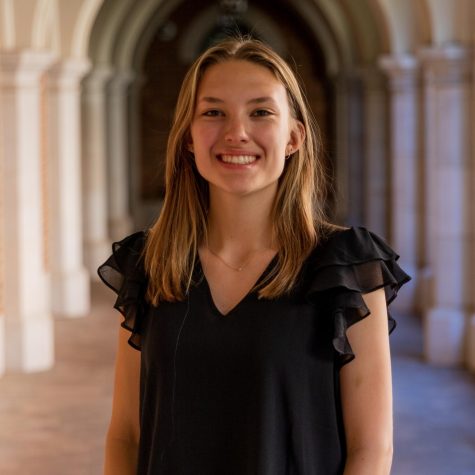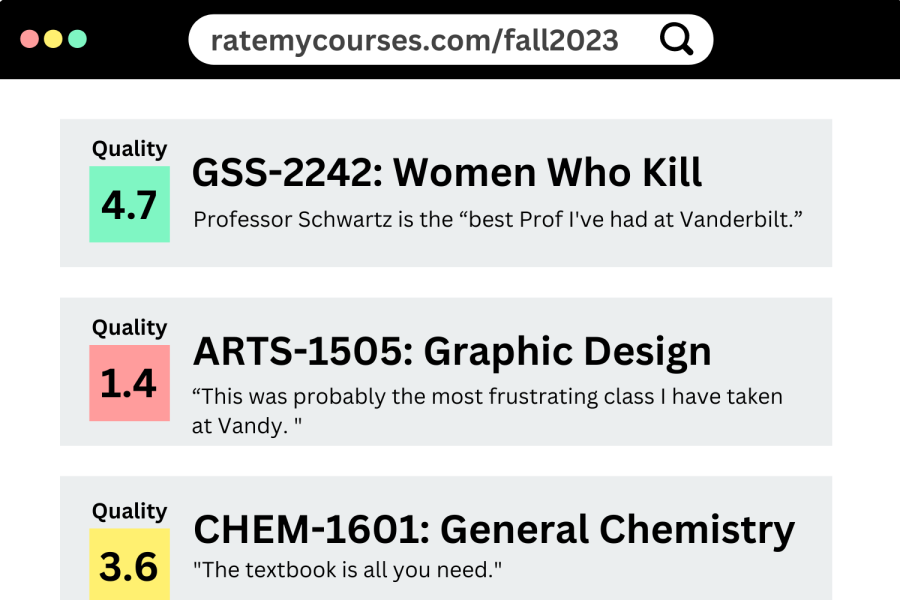Learning a new language can be a difficult and seemingly thankless endeavor.
It can take years and years of constant practice to achieve a professional level of proficiency, and during that process, progress can seem abysmally slow. While it is easy to romanticize the idea of quickly picking up on the nuances of the language and becoming proficient in a short time, that acquisition speed is nearly impossible without constant and immersive practice that requires hours per day. It is no wonder, then, that so many upper-level — and even beginner — language classes at Vanderbilt have many of their seats open. Learning new ways of speaking, writing and thinking will undoubtedly prove more difficult than it seems when signing up. As someone who recently quit learning a language after feeling defeated by the process, I would know.
I had taken classes in Mandarin Chinese throughout high school and continued during my first year at Vanderbilt, but by the spring semester, I felt worn out and defeated. My burning desire to achieve fluency seemed to extinguish itself almost completely, and I was unsure why this was the case. I enjoyed every class, adored my professors and found the coursework rewarding. But the vision that had sustained me before — the goal of living and traveling in China one day — suddenly seemed paltry and impossibly far away. After so many years focused on a dream, the decision to discontinue learning Chinese was difficult.
Thinking about learning a new language made me feel even worse; starting the process all over again made me anxious and overwhelmed. I imagined that my previous failure would carry over to any other language I dared to approach. Yet, at the same time, thinking about not studying a language for the first time since high school felt impossible. It has always been a significant, comforting and steady aspect of my life. During class registration, a part of me wanted to continue language learning, even if it wasn’t the Chinese language. I thought about other languages I could learn, which made me consider my many Brazilian friends and another friend currently learning Portuguese. Being able to talk to my friends and travel to Brazil unimpeded by a language barrier made the idea of language learning suddenly and completely enticing beyond anything I had felt before, even when first starting Chinese. So, with an unsure click, I enrolled myself in PORT 1103. The class is accelerated and intended for students with a strong background in a Romance language — which I do not possess — but there was no other option for introductory Portuguese.
I had no choice but to enter the fast lane, and I was terrified.
This time, however, my attitude toward language learning is proving different. I am finding myself not only heavily engaged in class but also seeking out additional immersion opportunities. Currently, I’m watching Netflix shows from Brazil and listening to podcasts in Portuguese. Whenever I hear my friends speak the language, I am excited to see which new words and phrases (or even whole sentences) I can understand. It is intoxicating in a way I had never experienced when learning languages before.
Any reason, even as simple as an interest in culture, can sustain language education as long as it lights a fire beneath you. Whether it takes two or 10 years to achieve a level you are happy with, the process will not feel like work if you know precisely why you are learning.
At first, I wondered whether this complete difference in motivation was due to the varying difficulties in learning the two languages. After all, Chinese has a character and tone system utterly dissimilar to anything in the English language, making language learning proceed much more slowly than Portuguese. However, after beginning my Portuguese journey, I now know that that was not the case, and the source was much more profound and personal: the motivators for learning in the first place. My reasons for continuing Chinese were hypothetical and abstract — hopes for my future and the people I would one day talk with — but I had no reasons in the present that kept me consistently excited to learn. I had professors and fellow students to talk to, but that could only inspire me so much. With Portuguese, the story is different. I hear my friends and loved ones talk in Portuguese to each other every day, and each day I can understand a little bit more. I am actively planning to travel to Brazil and visit their families.
If I had the same constant people and motivations surrounding me with Chinese, I know now I would still be enrolled in the language.
Whether it’s to communicate with friends in their native tongue, to experience media in its original language or to be able to live and work in another country, the most powerful catalysts for learning are grounded in your individual circumstances. In my case, these include dreams of living in Portugal or Brazil in addition to consistently interacting with friends who natively speak Portuguese. These motivators don’t have to be life-defining or groundbreaking. Still, they do have to make themselves apparent consistently. Otherwise, it is much too easy to lose track of your goal and make the process seem meaningless.
Any reason, even as simple as an interest in culture, can sustain language education as long as it lights a fire beneath you. Whether it takes two or 10 years to achieve a level you are happy with, the process will not feel like work if you know precisely why you are learning. Instead, it will feel like a personal mission and a continuous triumph after that first conversation or interaction in your new language. Learning a language “just because” is not enough — it must be a labor of love. After all, learning an entirely different vocabulary and grammar system requires too much commitment to treat it wantonly. Nurture it, devote yourself to it and continuously tell it exactly why you are happy to have this new language in your life, and before you know it, what once was gibberish becomes meaningful. I believe that is one of the closest things to magic humans can experience.
Even better, you will probably never encounter a better place to start learning a new language. Vanderbilt surrounds you with faculty whose primary goal is to help you speak, read, write and listen from scratch in almost any language you wish to learn. These professors and administrators hold office hours, conversation groups, language tables and many more resources to ensure you have every advantage available to succeed in your language journey. It is never too late to take that first class, even if you are a junior or senior; the hardest part is actually taking the initiative and getting started.
Psychological studies have established that the human brain is very skilled at learning new languages up until around the age of 18, after which it only gets more difficult as a person ages. It only makes sense to take the initiative to learn at least one other language while your brain is still easily malleable and attuned to learning. Acquiring a language is always demanding, but it only becomes more so as time progresses — all the more reason to start the process now.
Nurture it, devote yourself to it and continuously tell it exactly why you are happy to have this new language in your life, and before you know it, what once was gibberish becomes meaningful. I believe that is one of the closest things to magic humans can experience.
There is beauty in having more than one way to experience the world and express yourself. It may take years to become fluent, yes, but those years will pass anyway, whether you spend them learning a new language or not. Open enrollment for next semester is fast approaching, and you are surrounded by faculty devoted to helping you take that first step. All that’s left to do is find a language you are dedicated to and enroll — it won’t be long before the world opens itself up to you in ways you can’t yet imagine.
If you are deep in the language learning process and are experiencing a similar cycle of exhaustion, frustration and dejection, you are not wrong to be learning that language. However, I recommend considering your actual reasons and if another language may not have more substantial motivating factors. For me, the most significant difficulty in switching languages was the sunk cost fallacy. I had spent so many years learning Chinese that it seemed like a waste to start over entirely with something else. I’ve learned this semester that the personal satisfaction arising from active excitement toward language learning instead of quiet resignation will always be worth it.
Perhaps one day, I will gain a personal and present reason to learn Chinese again, and when that motivation strikes, you will find me back in the classroom. But today, with the people currently in my life, learning Portuguese is an invigorating and energizing experience in a way that Chinese was not. It’s filling me with excitement not just for a vague future but also for lunch this afternoon with my Portuguese-speaking friends — and that has made all the difference.
You deserve to enjoy the language-learning process and feel excited for today, not just “one day.” If something doesn’t feel right, don’t ignore it — maybe you just haven’t found the right language yet. After all, a language never exists for itself but to be shared between people; if you want your learning to succeed, you should have friends and family to share its joys and wonders with, in the tongue you’ve worked so hard to acquire.











